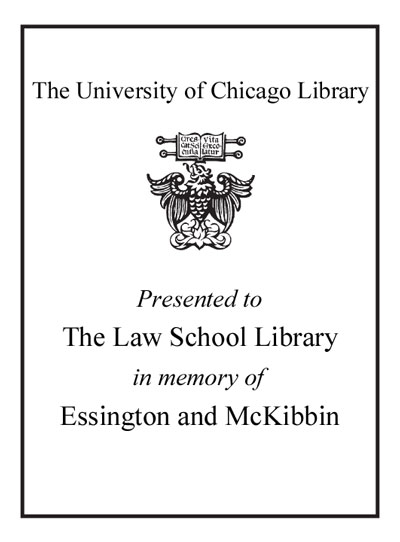Civis Europaeus sum? : Consequences with regard to nationality law and EU citizenship status of the independence of a devolved part of an EU member state /
Saved in:
| Author / Creator: | González, Guayasén Marrero, author. |
|---|---|
| Imprint: | Nijmegen : W.L.P. (Wolf Legal Publishers) ©2016. |
| Description: | xiii, 281 pages ; 24 cm |
| Language: | English |
| Subject: | |
| Format: | Print Book |
| URL for this record: | http://pi.lib.uchicago.edu/1001/cat/bib/11014466 |
Table of Contents:
- Acknowledgements
- Table of contents
- List of abbreviations of international treaties, protocols and recommendations
- Other abbreviations
- Glossary of Latin terms
- Glossary of legal terminology related to State succession
- Chapter 1. Introduction
- 1. State Succession "within" the European Union
- 2. Research Questions
- 3. Scope
- 3.1. Nationality Law
- 3.2. Territorial Scope
- 3.3. Personal Scope
- 4. Methodology and Structure
- 5. Concluding Remarks
- Chapter 2. State Succession and Nationality in International Law
- 1. State Succession: General Overview
- 1.1. Brief Notes on Statehood
- 1.2. State Succession
- 2. Self-De termination
- 3. Membership of International Organisations
- 4. Automatic State Succession to Human Right Treaties
- 5. State Succession and its Effects on Nationality of Natural Persons: The attribution of Nationality upon Independence
- 5.1. UN - International Law Commission
- 5.2. Council of Europe
- 6. The Decolonisation Process
- 6.1. Spain
- 6.1.1. Ifni
- 6.1.2. Equatorial Guinea
- 6.1.3. Western Sahara
- 6.2. Belgium
- 6.3. The United Kingdom
- 6.4. Identified Patterns
- 7. Concluding Remarks
- Chapter 3. State Succession in the EU: Catalonia, Flanders and Scotland
- 1. Introduction
- 2. Catalonia
- 3. Flanders
- 4. Scotland
- 5. Referenda, Consultation, Electoral rights and First Determination of nationals (Catalan, Flemish and Scottish proposals)
- 5.1. Catalonia
- 5.1.1. Eligibility to Vote in the Independence Query
- 5.1.2. Eligibility for Catalan Nationality ab initio in a Potential New Catalan State
- 5.2. Flanders
- 5.2.1. Introductory Remarks on an Independence Query in Flanders
- 5.2.2. Eligibility for Flemish Nationality ab initio in a Potential New Flemish State
- 5.3. Scotland
- 5.3.1. Eligibility to Vote in the Independence Query
- 5.3.1. Eligibility for Scottish Nationality ab initio in a Potential New Scottish State
- 6. Concluding Remarks
- Chapter 4. State Succession in the EU. EU Citizenship and Nationality Law
- 1. Introduction
- 2. EU citizenship vs. Member State Nationality
- 3. CJEU case law
- 3.1. Mario Vicente Micheletti and Others v Delegación del Gobierno en Cantabria
- 3.2. The Queen and Secretary of State for the Home Department v Manjit Kaur
- 3.3. Kunqian Catherine Zhu, Man Lavette Chen v Secretary of State for the Home Department
- 3.5. Janko Rottmann v. Freistaat Bayern
- 4. Maltese Citizenship-for-Sale Programme
- 5. Concluding Remarks
- Chapter 5. State Succession and the Right to Reside Permanently
- 1. The Kuric doctrine
- 1.1. The Facts of the Case
- 1.2. Proceedings before the Third Section
- 1.3. Proceedings before the Grand Chamber
- 2. Applying the Kuric Doctrine in a State Succession Scenario "within" the EU
- 3. Right to Reside as a Non-EU Member State National in an EU Member State upon Independence
- 3.1. The Specific Case of Former British nationals residing in the UK
- 4. Right to Reside in the Newly Independent States
- 4.1. Nationals of the Predecessor State and EU citizens residing in the Newly Independent State
- 4.2. TCNs residing in the Newly Independent State
- 5. Remarks on the Position of Minors
- 6. Concluding Remarks
- Chapter 6. Conclusions
- Bibliography
- Treaties, legislation, reports and other documents
- United Nations documents
- Council of Europe documents
- Multilateral treaties: varia
- Bilateral treaties
- Other documents
- EU law
- Other EU related documents
- Domestic law
- Belgium
- Canada
- Congo
- France
- Malta
- Slovenia
- Spain
- United Kingdom
- Case law
- PCIJ
- ICJ
- EU
- ECtHR
- Inter-American Court of Human Rights
- International Criminal Tribunal in relation to the former Yugoslavia
- Domestic courts
- Summary
- Resumen
- Samenvatting
- Valorisation Addendum
- 1. Societal Relevance of this Thesis
- 2. Target Groups for the Research Results
- 3. Innovative Character of this Thesis
- 4. Concrete Products, Services, Processes and Activities into which the Research Results will be translated and shaped
- 5. Implementing the Research Results
- Resumé

